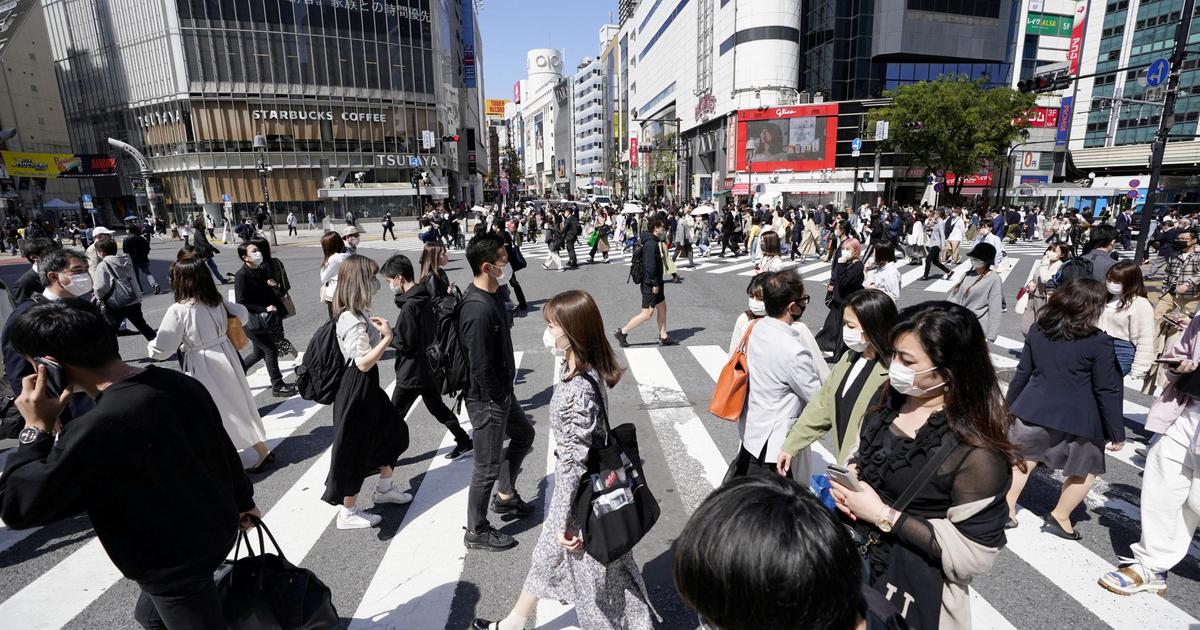Every day, thousands of deaths.
Brazil bends in the face of the virus.
Since the start of the epidemic, the country has been among the most affected, but it has never suffered so much.
Only one country in the world has a heavier daily toll: the United States, which is much more densely populated.
Now, more than 3,000 Brazilians die from the disease every day.
This is far more than the peak reached between June and August, at the height of the first wave, when just over 1,000 people lost their lives each day.
“Unfortunately, with Brazil, we realize how deadly the epidemic can be when the necessary measures are not put in place,” underlines epidemiologist Mircea T. Sofonea.
The epidemic is on the rise and President Bolsonaro does not change, he who continues to plead for a return to normal life.
"Stop whining!"
“, He had again launched at the beginning of March when speaking of the epidemic, which had killed 260,000 people at the time.
"Enough with these stories (...) you will cry until when?
», He continued, inaugurating a railway section in the State of Goais.
In Brazil, it is a real standoff between the president and governors determined to do everything possible to try to limit the slaughter.
"Bolsonaro acts in favor of the propagation"
“Brazil is almost a unique case in the world,” notes Gaspard Estrada, executive director of OPALC, the Political Observatory of Latin America and the Caribbean.
Unlike what is happening elsewhere, we have a federal government that is acting, let's say it, in favor of the spread of the virus.
He opposes social distancing measures, does not make the necessary efforts to accelerate the vaccination campaign, while Brazil was a priori armed to deploy it in good conditions.
"President Bolsonaro was also to be vaccinated this Sunday, but the doubt still persists as to whether he will indeed raise the sleeve.
The country, too, is hit hard by the so-called “Brazilian” variant, or “P.1”.
"It is not present in a homogeneous way throughout the country, but it is clear that it caused an increase in the attack rate, which exceeds those observed at the peak of the first wave, analyzes Mircea T. Sofonea.
We must not forget that the population is younger in Brazil than in many other countries.
If the age pyramid were the same as in France or in “older” countries, the epidemic would undoubtedly have been much more deadly.
Perhaps we could have doubled the number of deaths.
"
The situation remains dramatic.
In Brazil, the overwhelming majority of intubated patients eventually die.
Fernando Bozza, researcher from Fiocruz, a benchmark public health institution, conducted a survey on the subject in partnership with the University of Sao Paulo.
Its conclusions are frightening.
According to his calculations, 83.5% of patients intubated between November 15, 2020 and March 14, died.
Similar research carried out between February 15 and August 15, 2020 estimated the death rate of intubated patients at 78.7%.
A level to be compared with those observed in the United Kingdom (69%), Germany (52.8%), Italy (51.7%) or even Mexico (73.7%).
"The country lacks undertakers"
"Some Brazilian hospitals are now on the verge of collapse," warns Gaspard Estrada.
The variant probably accelerated the spread of the virus.
While it affected certain regions more strongly in 2020, it now seems to circulate more evenly across the country.
The health care system is on the verge of collapse.
An example suffices to illustrate the situation.
The country lacks undertakers to bury the victims.
Above all, it is possible that the mortality figures are in fact underestimated.
“The delays in taking charge of the hospital are often too long,” continues Mircea T. Sofonea.
Admissions are too late, and many home deaths are likely to go unaccounted for.
"
In Brazil, the health drama is combined with the political crisis.
This week, President Bolsonaro overhauled his government.
Six ministers had to leave their posts.
Among them, key portfolios, such as Justice, Foreign Affairs or Defense.
This last departure also led to the resignation of the three generals at the head of the Army, Air Force and Navy, who decided to slam the door.
“There is a lot of political uncertainty, notes Gaspard Estrada.
The elections will take place in November 2022 and one wonders what will happen between now and then.
These resignations are fraught with meaning, while Jair Bolsonaro had been generally supported by the military so far, whom he had placed in key positions.
Since the start of the health crisis, four ministers of health have followed one another.
This ministerial waltz illustrates the government's inability to deal with the virus.
It also undoubtedly sticks to the political strategy of Bolsonaro, which is starting to retreat in the polls.
"A majority of Brazilians, around 59%, now express mistrust of their president, if one relies on the latest polls," notes Gaspard Estrada.
We see that opinion is polarizing.
While many citizens did not express a position, they now express an opinion on their president.
It should be remembered, however, that this retains a base of support, estimated at between 25 and 30%, on which it is based ”.
And which does not vary according to mistakes in the face of the virus.
Coronavirus Newsletter
Update on the Covid-19 epidemic
Subscribe to the newsletterAll newsletters
Can the chaotic management of the epidemic in Brazil, one way or another, threaten other countries in the world?
Some specialists fear that the slowness of the vaccination campaign, coupled with the very strong circulation of the virus, will make this country a breeding ground for the appearance of new, even more dangerous mutations.
“We will have to be vigilant on this point, but what we see for the moment is that the P.1 variant, which is already circulating in around thirty countries, does not seem to be imposed for the moment in France. , where the British variant is now largely in the majority, notes Mircea T. Sofonea.
But with this virus, nothing should be excluded in principle.
"









